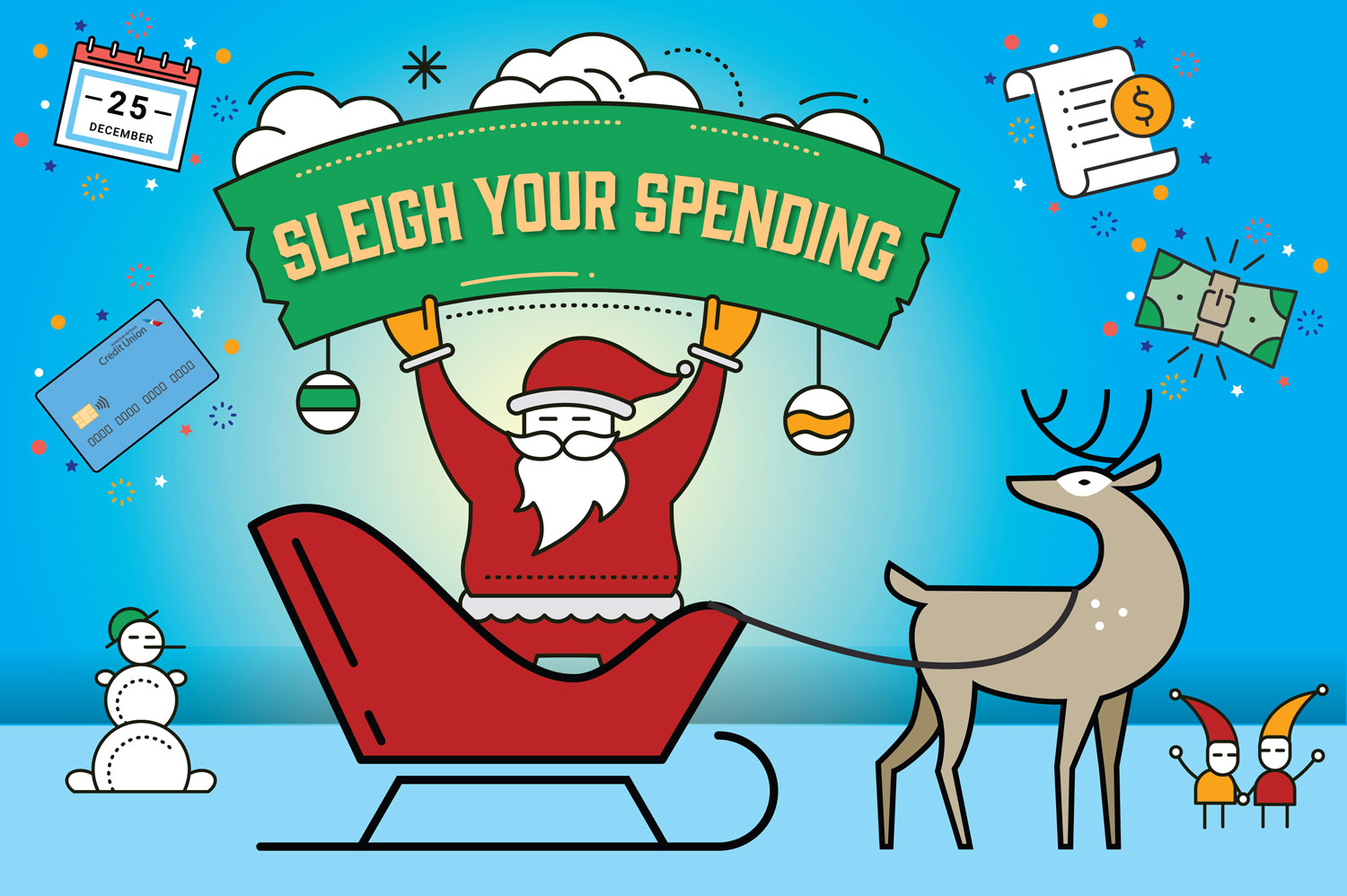SUMMARY: Stay on the good list! Follow these expert suggestions to keep your finances on track as you head into the new year.
Last year, the holiday season was anything but jolly for many Americans, according to consumer credit reporting firm Experian. More than half (56%) of those surveyed reported feeling stressed about their finances and nearly two-thirds (63%) reported spending too much during the holidays. If you’re worried about this year’s holiday finances, take note: With planning and practical tools, you can keep both spirits and bank balances high as we close out 2025.
Get help from experts. Many of the people Credit Union Financial Counselor Anays Dickson meets with use credit to purchase gifts, but some struggle to pay balances off by the following shopping season. Buying gifts is more joyful when you don’t go into debt, she says. Tackle credit card debt or other personal debts by meeting with a Financial Wellness counselor who can look at your finances and help you make a repayment plan. Members can set up a complimentary Wellness Check-up by providing a few simple financial details. Using that information, financial counselors can come up with an action plan.
“We believe that budgeting builds the foundation, so that's where we start with our members,” Dickson says. “Many of the members that I meet with daily have difficulty organizing their finances.”
Make like Santa and create a list. Once you’ve got your finances in order, it’s time to go shopping. If you head to the stores without a plan, though, you may make impulse purchases or spend too much. Create a shopping list on your phone or in a notebook, add everyone — including family, friends and coworkers — who should receive a gift as well as what they might like and how much you want to spend. Dickson says she starts shopping in October or even earlier, looking out for sales and trying to purchase at least one gift every pay period.
Don’t fall for FOMO. With happy music playing and holiday decorations everywhere it’s tempting to buy things that we (or our gift recipients) don’t need or want. The fix: Ask yourself if you’d still buy it if you were paying cash. “When you're swiping a credit card, you don't have the emotional ties to the money like you would with cash. It's a lot easier to overspend,” Credit Union Financial Wellness Manager Jamie Fatheree says.
Use credit cards judiciously. If you’re not in debt, use credit cards to get perks like cash back on purchases. Qualified users of the Credit Union’s Visa Signature Cash Back Credit Card, for example, get 2% back on everyday spending. You can also take advantage of zero percent balance transfers if you’re carrying debt and want to start with a clean slate. Learn more about our Credit Card Rates and Fees.
Pay off charges at the end of the billing cycle — or promotional period — to avoid interest. No matter what, pay bills on time to avoid late fees. And watch overall spending, Dickson says.
“Don’t use more than 30% of your available credit because that’s when credit scores start to go down.”
Carrying higher balances shows creditors and credit bureaus that you’re more dependent on borrowing and may be more likely to only pay the minimum or miss payments entirely. Higher balances will also incur more interest and require higher minimum payments.
Plan ahead. Once January comes, it’s a good idea to get ahead of next year’s holiday spending by creating a sinking fund, Fatheree says. Figure out how much you spent on gifts this year, divide that number by 10, and start saving that amount each month. “This fund will help you plan ahead and avoid debt in the future,” she said.
Fatheree calls her savings account a “celebration account” and uses it to fund other holiday and birthday spending throughout the year. “It’s a good way to put money aside every paycheck. There are no fees, and you can access it whenever something worth celebrating comes up.”
Visa and Visa Signature are registered trademarks of Visa International Service Association.



